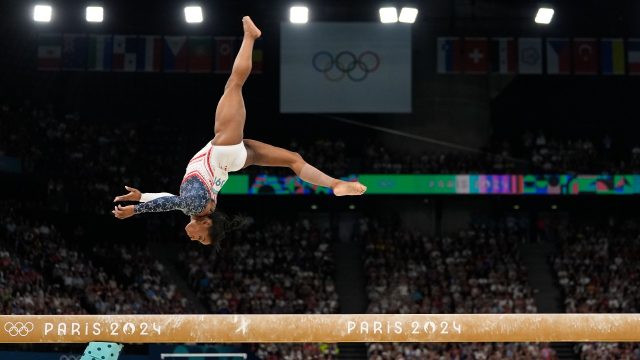
USA Gymnastics officials say an arbitration panel won’t reconsider a decision asking gymnast Jordan Chiles to return the bronze medal she was awarded in the floor exercise at the Paris Olympics.
USA Gymnastics says it will continue efforts to let Chiles keep the medal.
“USA Gymnastics was notified by the Court of Arbitration for Sport (CAS) on Monday that their rules do not allow for an arbitral award to be reconsidered even when conclusive new evidence is presented,” USA Gymnastics said in a statement.
“We are deeply disappointed by the notification and will continue to pursue every possible avenue and appeal process, including to the Swiss Federal Tribunal, to ensure the just scoring, placement, and medal award for Jordan.”
CAS voided an on-floor appeal from Chiles’ coach that vaulted her to third, saying the appeal came 4 seconds beyond the one-minute time limit for scoring inquiries.
USA Gymnastics disputed the timing, saying in a statement Sunday that the agency submitted video evidence to CAS that showed Team USA coach Cecile Landi first appealed 13 seconds before the deadline.
The dispute over such minute details sets up what could be a months- or years-long legal battle over the gymnastics scores.
The International Gymnastics Federation (FIG) said Saturday night it would respect the court’s decision and elevate Ana Barbosu of Romania to third. The International Olympic Committee confirmed the ruling Sunday, announcing that it was reallocating the medal.
CAS ruled Saturday that Landi’s inquiry to have 0.1 added to Chiles’ score came outside the one-minute window. The CAS ad hoc committee wrote that Landi’s inquiry came 1 minute, 4 seconds after Chiles’ initial score was posted.
The IOC said in a statement it will be in touch with the USOPC regarding the return of Chiles’ bronze and will work with the Romanian Olympic Committee to discuss a reallocation ceremony honoring Barbosu.
The appeal could go to Switzerland’s highest court, the Swiss Tribunal, or the European Court of Human Rights.
Rebeca Andrade of Brazil won gold and Simone Biles of the U.S. was the silver medalist.